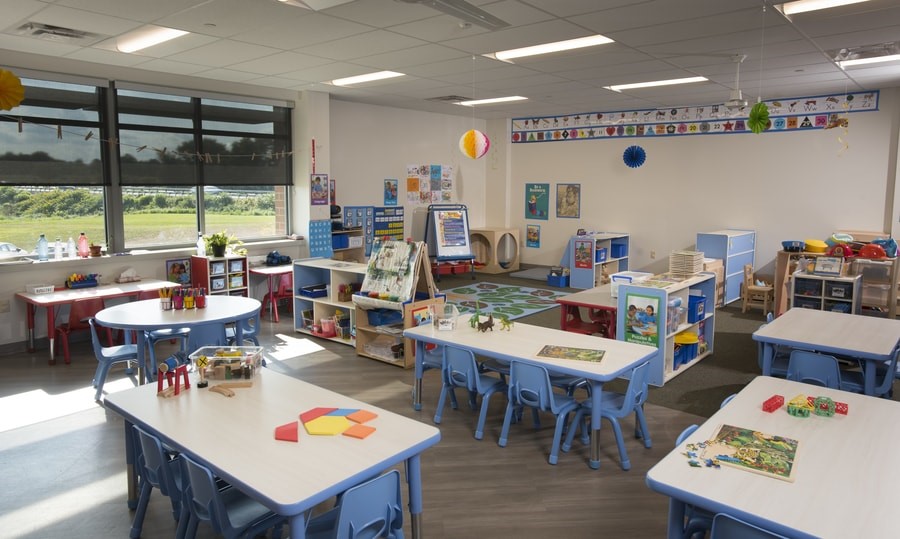At the Athenaeum Center for Thought and Culture, Prop Thtr’s 41st season return to in-person programming is the eagerly stale The Cleanup. For Prop Thtr, which bills itself as “Chicago’s home for radical art,” The Cleanup is disappointingly familiar. This is a play about parenting during and after the COVID-19 pandemic, where two parents in crumbling marriages—the uncertain Nicole and too-suave Logan—fall in love with each other as they volunteer at their children’s preschool. The two quickly realize that their new romance is less wonderful than it first seemed. I won’t spoil the details of their falling out—though those details are not particularly startling—but suffice to say the hit-you-over-the-head morals of this play are “sometimes your ruin is in plain sight” and “don’t forsake friendship.” And a third moral, courtesy of this reviewer: we need some distance from the pandemic before we can try to glean its more profound lessons.
Plays are rarely brought down by a single element, but this play is an exception. Hallie Palladino’s script—and the dialogue in particular—is distracting to the point of disaster. Lines like “the thing is, I’m not a good guy,” “you’re the best partner I never deserved,” and “we can’t [trust]. But we must. Because without trust we wouldn’t have community,” consign The Cleanup’s characters to cartoonish simplicity.
And that’s a shame, because if they had more intriguing dialogue to work with, the play’s small cast would be intriguing. As the preschool’s founders Julie and Ryan, Lynnette Li and Brandon Rivera convincingly portray the kind of wonky worldview that would persuade two people that the solution to parenting challenges is to parent other people’s kids too. And Li displays a genuineness, depth of character, and passion in her role that goes unmatched elsewhere on stage.
Lucy Carapetyan as Nicole and Chad Patterson as Logan are less compelling, though that is due in part to awkwardly written lines. Nevertheless, they do display genuine chemistry on stage, and their scenes of physical intimacy are well-choreographed and charmingly played. There’s one scene in particular, in which the two throw kids’ paint at each other and then roll around on the canvas, that was surprisingly effective on stage for a scene that felt ripped out of Love Actually.
Much of this play does feel like a rom-com. Nicole and Logan literally run into each other at one point. He fixes her stroller. They bond over ill-fitting gloves. He drops some notes, and she finds them. They set off fireworks together on the preschool roof—haha, get it? He takes her to his cabin in the woods, where she can “[sit] on the front porch on a frosty morning with steam wafting off [her] coffee cup while she watches the geese.” The list goes on.
These events serve as the figurative backdrop for the aforementioned dialogue, which is a strange combination of narration, exposition, and cliché philosophizing. The actual backdrop, by contrast, is well constructed, even if it’s a little too well put-together for a preschool in a church basement. Colored cloths hang from curtains on the walls; there’s a dollhouse and a train table upstage; a string of lights hanging from the ceiling quite wonderfully creates a series of effects: stars, fireworks, Christmastime. Overall, it’s a smart and effective use of space.
However, this well-crafted set—with various areas and compartments—goes largely unused due to routine blocking. Some transitions dragged, and downstage entrances and exits were obvious. The Cleanup is, like a preschool, a collection of overused items sitting around and waiting for someone to laugh at them, and when those items are used, it’s so often in a destructive manner. And like this particular preschool, The Cleanup is too tightly constructed; it’s simply unrealistic, when its chief goal is to be a reasonable depiction of post-pandemic life.
Prop Thtr’s production of “The Cleanup” is at the Athenaeum Center for Thought and Culture through November 19.








